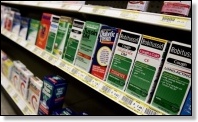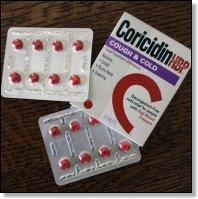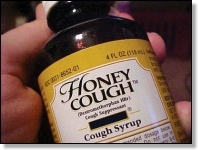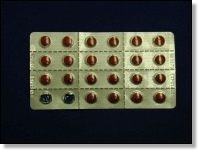Drug Facts: Cough Suppressants (OTC) / Dextromethorphan (DXM)
What is DXM?
Dextromethorphan, or DXM, is a cough suppressant found in over 100 different cough and cold medications, most of which are sold over the counter. Its purpose is not to treat underlying conditions that cause coughs but, rather, to prevent the coughing itself. It is also a dissociative anesthetic, and in certain quantities can act similarly to PCP or Ketamine.
How, why, and how often is DXM abused?
When used as directed on the label, products containing DXM are safe and effective at preventing coughs. Abusers typically fall into two different categories: the psychologically dependent (46.5% in one study) and recreational users (32.6% in the same study). While large scale studies of individuals who abuse DXM are still fairly rare, one of the first such studies, conducted in 2006 (the Dayton Area Drug Survey) indicates that 4.9% of 12th grade students had abused DXM at least once in their lifetime.
What problems can arise from DXM abuse?
Short-term effects of DXM abuse vary by dose, but include confusion, dizziness, blurred vision, slurred speech, impaired physical coordination, abdominal pain, nausea and vomiting, rapid heartbeat, drowsiness, numbness of fingers and toes, disorientation, mild hallucinogenic effects, brain damage, seizures, and loss of consciousness. One report warns that “many substances containing DXM also contain acetaminophen, which is very dangerous in large quantities.” Consequently, an overdose on a substance containing DXM can be quite dangerous. Additional information related to acetaminophen overdose is available in the Brief Information: Pain Killers (OTC) section.
Another study reports that approximately 5% of individuals of European ethnicity “lack the ability to metabolize DXM, leading to acute toxic levels.” In these individuals, DXM abuse is therefore of significantly heightened danger.
What else should I know about DXM?
Contrary to the perception that over-the-counter substances are not dangerous to abuse, the DAWN report notes that, “in 2004 there were 12,584 emergency department visits involving pharmaceuticals containing DXM.”The Partnership for a Drug Free America. (2008). DXM. Retrieved online on 8/21/08 from: http://www.drugfree.org.
Staff. (2008). Dextromethorphan. Retrieved online on 8/22/08 from: http://www.nlm.nih.gov/medlineplus.
National Youth Anti-Drug Media Campaign. (2008). Over-the-counter drugs – Abuse where you least expect it. Retrieved online on 8/21/08 from: http://www.theantidrug.com.
Ziaee, V., Hamed, E.A., Hoshmand, A., Amini, H., Kebriaeizadeh, A., and Saman, K. (2005). Side effects of dextromethorphan abuse, a case series. Addictive Behaviors, 30(8), 1607-1613.
Falck, R., Li, L., Carlson, R., and Wang, J. (2006). The prevalence of dextromethorphan abuse among high school students. Pediatrics, 118(5), 2267-2269.



